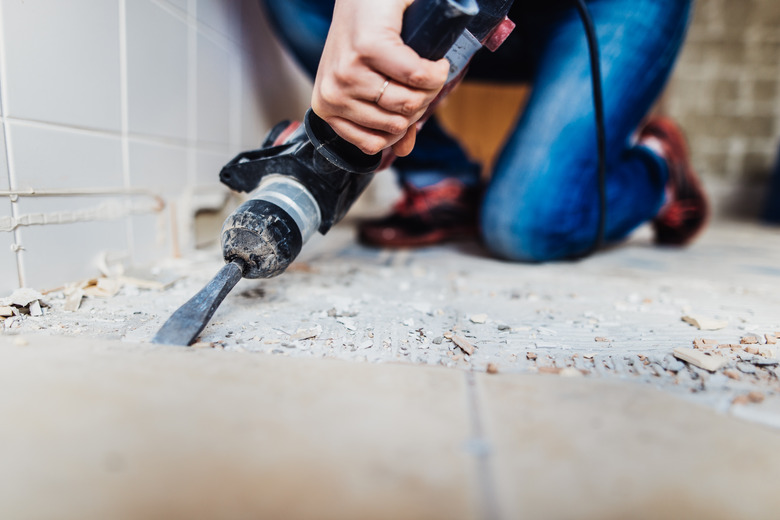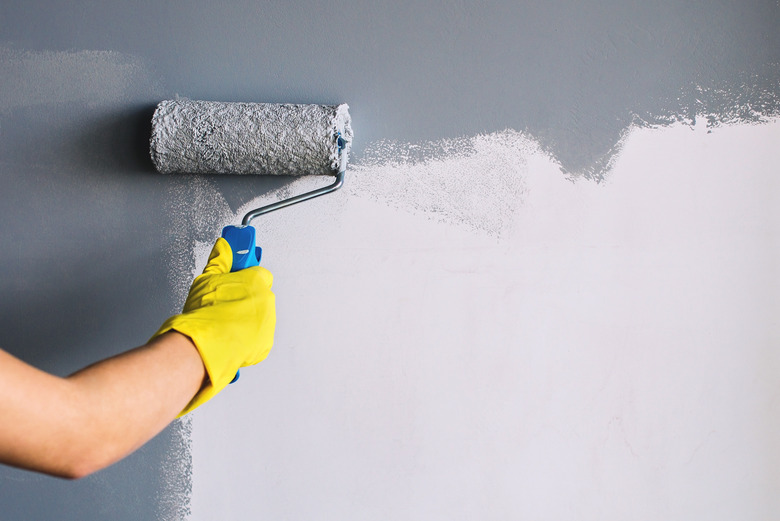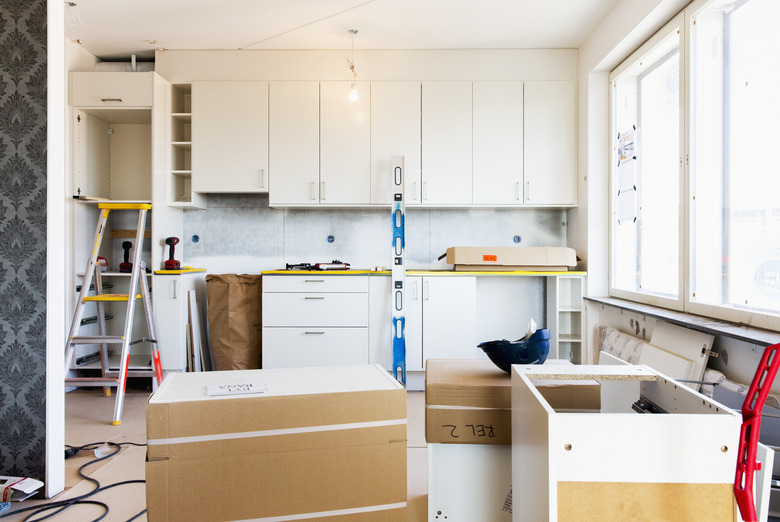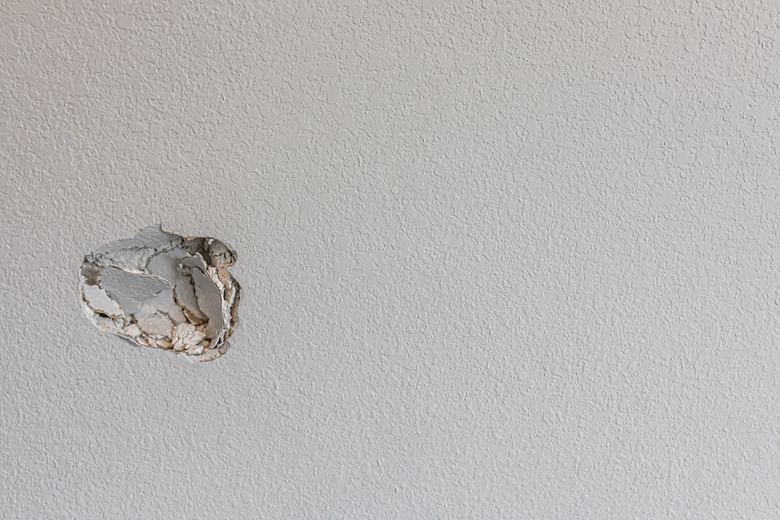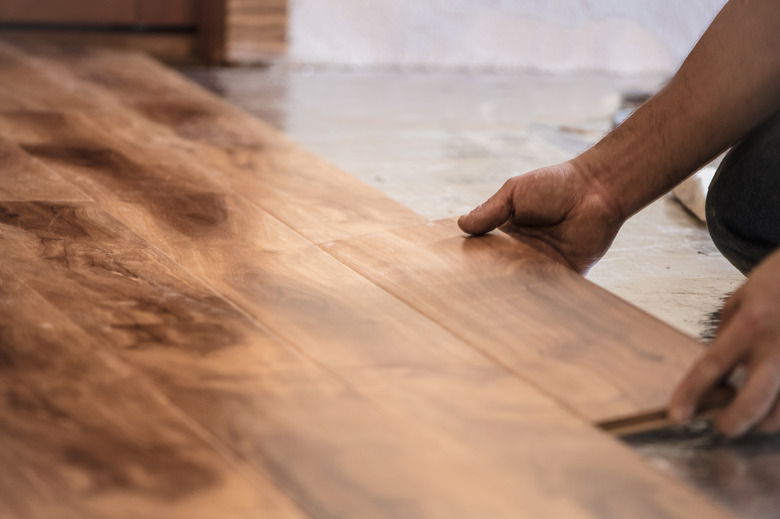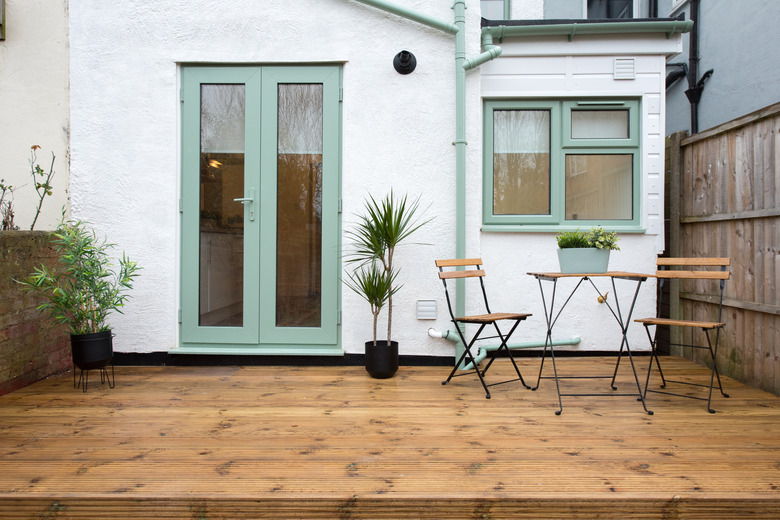7 Renovation Mistakes You Should Avoid When Selling, According To An Expert
Today's real estate market is hotter than ever. Many homes are getting snatched up moments after they're listed, with a large number of them even going for well over their initial asking price. All of that spells good news for sellers, who are positioned to come out on top financially. While all of this gives many homeowners the confidence to list their home in as-is condition, some are still weighing the pros and cons of making renovations in an effort to nab top dollar for their property.
Kirk Pugh, broker/realtor and co-founder of KBT Realty Group, says that in today's real estate world, it's still hard to get a dollar-for-dollar return on your investment. Even in a great market, Pugh says that most people are only getting a maximum of 80 or 85 cents back on every dollar they put into their renovations. For bigger renovations, that can mean a lot of money spent that will go unreturned.
We asked Pugh what mistakes he tells his clients to avoid when they're looking to get their property ready to list.
1. Painting
1. Painting
Pugh says you can keep your paintbrush and drop cloths in the shed. "The minute you go and put a fresh coat of paint on the walls, somebody is going to come in and want it to be seafoam green," he says. Instead, Pugh suggests saving your time and money by letting the new owner tackle this job on their own.
2. Updating the Kitchen and Bathroom
2. Updating the Kitchen and Bathroom
In today's market, updates like replacing appliances and adding new countertops aren't going as far as they used to. It's not because of the quality of the work or materials used, but because of the limited number of homes from which hopeful homeowners have to choose. "The inventory in our market is so scarce that buyers are jumping at the chance, and they're paying top dollar if not more just to have the opportunity [to buy a home]," Pugh says.
3. Replacing Old, but Working, Items
3. Replacing Old, but Working, Items
Buyers can't be as picky today as they once were, and while a dated HVAC system may have been a deal- breaker for someone who didn't want to have to handle problems that would arise, Pugh says people today are way less picky about these kinds of things. As long as your appliances and systems are in working order, you should leave the upgrades to the new owners.
4. Making Minor Repairs
4. Making Minor Repairs
As long as there aren't any health and safety issues, Pugh says most sellers can get away with leaving minor issues (like holes that need to be patched or water damage from a leaky toilet) the way they are and offering closing credits so that the new owners can take care of small problems on their own time.
However, Pugh says that any major repairs or health and safety issues should be addressed right away. He says he would advise his own buyers to think twice about issues like mold since they can be very expensive to fix down the line. If you have a mold issue, you should tackle that before listing so you don't have to worry about chasing away your prospective buyers.
Additionally, structural issues are major red flags that need attention before you put your home up on the market. Pugh says when he works with homeowners whose homes have significant structural failures, he absolutely suggests renovating and repairing, even in a hot market like the one we're currently dealing with.
5. Making Expensive Investments
5. Making Expensive Investments
A good rule of thumb is to avoid renovating your home too much. While it's still true that some tweaks and updates could potentially fetch you a higher price, Pugh says there's a ceiling on how much you can actually earn back on your investment. For people who are overimproving or increasing their home's value by more than the neighborhood average, you're unlikely to recoup your costs no matter how nice you make things.
"So, if you live in a neighborhood where the houses have never sold for more than $400,000 and you've got a $300,000 mortgage and want to do a major renovation that's going to cost $150,000, you're going to outspend the market for that neighborhood," he says, adding that you'll either be left having to wait for the market to catch up or you're going to have to try to find a buyer who is willing to pay an excessive amount over what is reasonable for that neighborhood. "And that puts a seller in a tough spot," he says.
6. Replacing Flooring
6. Replacing Flooring
Just like with paint, Pugh says it's better to let the new owners make cosmetic updates to the house so that they can get exactly what they want. "You know everyone in my business has heard stories about a seller who prepared for selling by going out and spending $6,000 or $8,000 to replace all the carpet in the house, only to find out that five minutes after the buyer closed on it, they tore all the carpet out because they wanted hardwood," he says. "Now did it cause the house to sell faster? Perhaps, but in this market, everything is selling, and there is a price at which everything will sell."
7. Failing to Talk to a Real Estate Agent First
7. Failing to Talk to a Real Estate Agent First
At the end of the day, Pugh says that a lot of what makes or breaks a prelisting renovation project is failing to have a chat with your real estate agent beforehand. "It comes down to the agent being a professional, being able to set expectations with both buyers and sellers, and letting them know what the market is doing and what to expect from a seller or what to expect as a buyer."
That means if you really want to know what renovations will get you the most bang for your buck (and which will be expensive duds), you should talk to a local agent before getting started.
Renovating Mistakes Before Selling
Renovating Mistakes Before Selling
Whether you're hoping to get top dollar for your home, or you simply can't stand the idea of would-be buyers walking around before everything is just-so, it's important to keep these common renovation mistakes in mind before you sell:
- Painting your home
- Doing expensive kitchen and bathroom renovations
- Replacing old but working items
- Making minor repairs the buyer could fix themselves
- Making expensive investments in the home
- Replacing flooring
- Failing to talk to an agent before you renovate
